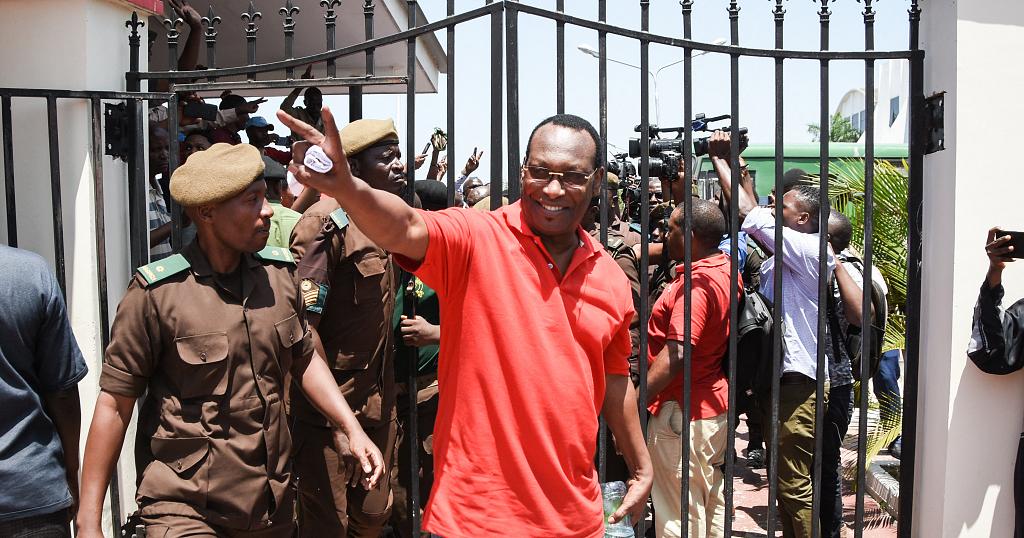192
Freeman Mbowe, released from prison on Friday after controversial terrorism charges against him were dropped, was one of the founders 30 years ago of the Tanzanian opposition party Chadema, which has become an outspoken figure of protest in his country.
His parents had him baptized in December 1961, just after the independence of the former East African British colony of Tanganyika, which also inspired his first name (“free man” in English).
His father, a businessman, played an important role in the independence movement.
He was close to Julius Nyerere, the first president of Tanganyika, before distancing himself from the “African socialist” line adopted in the years following the merger of Tanganyika with Zanzibar to form the Republic of Tanzania in 1964.
After his military service, Freeman Mbowe worked for four years at the Tanzanian central bank, while learning to run the family business in his spare time.
But as Tanzania took an increasingly socialist turn under Nyerere’s ruling Chama Cha Mapinduzi Party (CCM), demands for political reform grew.
Conviction in 2020
In 1992, Nyerere’s successor, Ali Hassan Mwinyi, opened the door to multiparty democracy, allowing opposition parties to run for office three years later.
Freeman Mbowe was a supporter of a centre-right alternative to socialism.
In May 1992, at the age of 30, he helped found the Chadema party, an acronym for Chama cha Demokrasia na Maendeleo (Party for Democracy and Progress in Swahili), of which he was the youngest founding member.
Since 2004, he has been the chairman of the party, which has become the main opposition political force in the country.
Mbowe ran for president in 2005, losing to the CCM candidate, but held his parliamentary seat until 2020, when he was defeated in a general election contested by his party.
In March 2020, he and seven other MPs and opposition leaders were fined 350 million shillings (137,000 euros) for a banned demonstration in February 2018.
They were charged with sedition, unlawful assembly and inciting violence at the rally, during which police fired live ammunition to disperse the crowd. A 22-year-old student, who was not participating in the demonstration, was killed by a stray bullet.
The march had been banned by the government of former president John Magufuli, who came to power in 2015 and was nicknamed “the bulldozer” for his uncompromising style and refusal of dissent.
“Impending disaster”
Mbowe was a fierce opponent of Magufuli, who was also criticized for downplaying the impact of the coronavirus pandemic and denying the effectiveness of vaccines.
“The world is crying and mourning the loss of lives! The global economy is collapsing at an unprecedented rate! Our struggling economy cannot survive in isolation! How much loss of life will make you see the impending doom!?”, Mbowe thus challenged the president on Twitter in April 2020.
Samia Suluhu Hassan’s assumption of power in March 2021 after Magufuli’s sudden death had generated some optimism as the new leader sought to break with some of her predecessor’s policies.
But the arrest of Mbowe and several other Chadema officials on July 21, prior to a public meeting to demand constitutional reform, signaled the danger of a return to the dark days of the Magufuli era for his party.
During the more than seven months its leader has been in detention, Chadema has denounced a drift toward “dictatorship.
Mbowe and his lawyers have repeatedly denounced a “political” trial and demanded that the terrorism charges, which they say are “unfounded,” be dropped.
The international community, as well as civil society, has also expressed concern about the fate of the main opposition leader in Tanzania.
On Friday, his trial was halted, after prosecutors announced they would “not pursue the case further”. And what beckons next for him in Tanzania’s polity remains to be seen.


